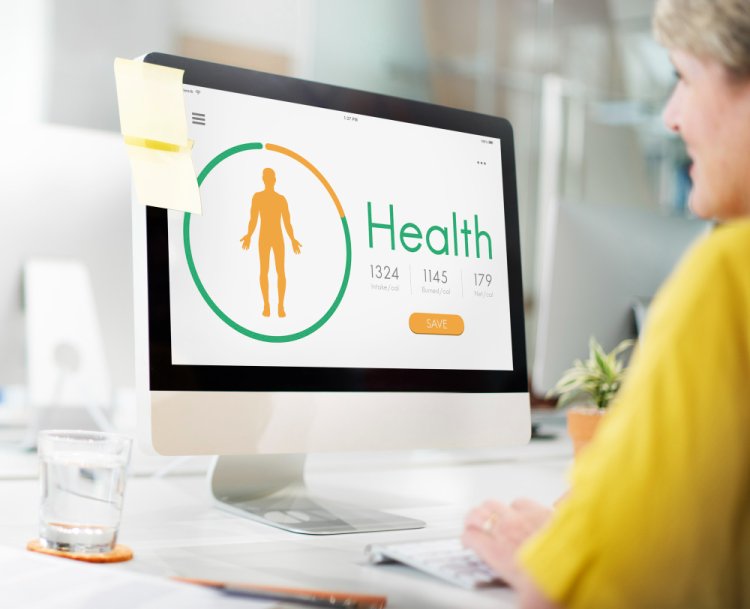Revolutionising Healthcare: The Role and Impact of Health Management Information Systems (HMIS)
Explore the transformative impact of Health Management Information Systems (HMIS) in healthcare. Discover how HMIS improves patient care, enhances efficiency, and reduces costs through advanced data management and integration with modern technologies.
Share this Post to earn Money ( Upto ₹100 per 1000 Views )

Introduction to Health Management Information Systems (HMIS)
In the evolving landscape of healthcare, Health Management Information Systems (HMIS) play a pivotal role in streamlining processes, improving patient care, and enhancing the efficiency of healthcare facilities. These systems integrate information technology to manage healthcare data, thereby improving decision-making, ensuring the accuracy of patient information, and optimising the delivery of health services.
Definition and Importance of HMIS
What is a Health Management Information System?
A Health Management Information System (HMIS) is a comprehensive and integrated system designed to capture, store, manage, and transmit information related to the health of individuals or the activities of organisations that work within the health sector. It includes data related to patient records, hospital administration, clinical guidelines, financial management, and more.

The Role of HMIS in Modern Healthcare
HMIS serves as the backbone of modern healthcare by facilitating the efficient collection, storage, and retrieval of data. It supports healthcare providers in delivering timely and accurate care by providing easy access to patient records, treatment histories, and other critical information. HMIS also aids in resource management, enabling facilities to allocate resources effectively and reduce waste.
Key Benefits of Implementing HMIS in Healthcare Facilities
- Improved Patient Care: By providing healthcare professionals with instant access to patient records and treatment histories, HMIS enhances the quality of patient care.
- Increased Efficiency: HMIS automates many administrative tasks, reducing the time spent on paperwork and allowing healthcare workers to focus more on patient care.
- Cost Reduction: By optimising resource allocation and reducing redundancies, HMIS helps lower operational costs.
- Enhanced Data Security: Advanced security features in HMIS ensure the protection of sensitive patient data against unauthorised access.
Core Components of Health Management Information Systems
Essential Features of an Effective HMIS
An effective HMIS should include features such as user-friendly interfaces, customisable reporting tools, real-time data access, and robust security measures. These features enable healthcare providers to efficiently manage patient information and improve healthcare delivery.
Data Collection and Management: The Backbone of HMIS
Data collection and management are critical components of HMIS. The system should be capable of collecting data from various sources, storing it securely, and making it accessible to authorised users. Efficient data management ensures the accuracy and consistency of information across the healthcare facility.
Interoperability and Integration with Other Health Systems
For an HMIS to be effective, it must be able to integrate with other health systems, such as electronic health records (EHR), laboratory information systems, and billing systems. Interoperability ensures seamless data exchange between different systems, facilitating comprehensive patient care.
Security and Privacy Considerations in HMIS
Ensuring the security and privacy of patient data is paramount. An effective HMIS should include measures such as encryption, access controls, and regular audits to protect sensitive information from breaches and unauthorised access.
Types of Health Management Information Systems
Electronic Health Records (EHR) Systems
EHR systems are a key component of HMIS, allowing for the electronic storage and retrieval of patient health records. These systems enable healthcare providers to access patient information quickly, improving the accuracy and efficiency of care delivery.
Patient Management Systems: Streamlining Patient Care
Patient management systems focus on managing patient flow within healthcare facilities. They assist in scheduling appointments, managing admissions and discharges, and tracking patient interactions, ensuring a smooth and efficient patient experience.
Laboratory Information Management Systems (LIMS)
LIMS are designed to manage laboratory operations, including sample tracking, data analysis, and report generation. By integrating LIMS with HMIS, healthcare facilities can enhance laboratory efficiency and improve diagnostic accuracy.
Public Health Information Systems: Enhancing Population Health
Public health information systems collect and analyse data related to population health, enabling public health officials to monitor disease outbreaks, assess health trends, and develop targeted interventions to improve community health.
The Impact of HMIS on Healthcare Delivery
Improving Clinical Decision-Making with HMIS
HMIS supports clinical decision-making by providing healthcare professionals with access to comprehensive patient data, clinical guidelines, and decision-support tools. This enables providers to make informed decisions, improving patient outcomes.
Enhancing patient outcomes through data-driven insights
By analysing the data collected through HMIS, healthcare providers can identify trends, assess treatment effectiveness, and develop personalised care plans, ultimately enhancing patient outcomes.
Streamlining administrative processes and reducing costs
HMIS automates administrative tasks such as billing, scheduling, and inventory management, reducing the burden on staff and minimising errors. This streamlining leads to cost savings and improved operational efficiency.
The Role of HMIS in Telemedicine and Remote Patient Monitoring
HMIS plays a crucial role in telemedicine and remote patient monitoring by facilitating data sharing between patients and providers. This enables continuous monitoring of patient health, timely interventions, and improved access to care.
Challenges in Implementing HMIS
Overcoming Technical Barriers in HMIS Implementation
Implementing HMIS can present technical challenges, including system integration issues, data migration complexities, and infrastructure limitations. Addressing these barriers requires careful planning, investment in technology, and collaboration between stakeholders.
Addressing Resistance to Change among Healthcare Providers
Resistance to change is a common challenge in HMIS implementation. To overcome this, healthcare facilities must provide adequate training, support, and communication to ensure staff are comfortable and proficient in using the new system.
Ensuring data accuracy and consistency across the system
Maintaining data accuracy and consistency is critical for the effectiveness of HMIS. This requires rigorous data validation processes, regular audits, and ongoing monitoring to identify and rectify discrepancies.
Managing Costs and Resource Allocation for HMIS Projects
The implementation of HMIS can be costly, requiring significant investment in technology, infrastructure, and training. Effective budget management and strategic resource allocation are essential to ensuring the successful deployment and sustainability of HMIS projects.
Future Trends in Health Management Information Systems
The Rise of Artificial Intelligence in HMIS
Artificial intelligence (AI) is set to transform HMIS by enabling advanced data analytics, predictive modelling, and automation. AI can enhance clinical decision-making, improve patient outcomes, and streamline operations through intelligent automation and data-driven insights.
Predictive Analytics and its Role in Future HMIS
Predictive analytics will play a crucial role in the future of HMIS by enabling healthcare providers to anticipate patient needs, identify potential health risks, and optimise resource allocation, leading to proactive and personalised care.
The Evolution of Mobile Health (mHealth) Applications
The growth of mobile health (mHealth) applications is revolutionising HMIS by providing patients and providers with easy access to health information on mobile devices. mHealth apps facilitate remote monitoring, patient engagement, and real-time communication, improving access to care.
The Growing Importance of Patient-Centred HMIS Solutions
Future HMIS solutions will increasingly focus on patient-centred care, empowering patients to take an active role in managing their health. Patient portals, personalised health records, and digital engagement tools will enable patients to access their health information, communicate with providers, and make informed decisions about their care.
Conclusion
Health Management Information Systems (HMIS) are vital to the transformation of healthcare delivery, providing the tools and technologies necessary to improve patient care, enhance operational efficiency, and reduce costs. As healthcare continues to evolve, HMIS will play an increasingly important role in enabling data-driven decision-making, facilitating innovation, and supporting patient-centred care. The future of HMIS holds great promise, with advances in AI, predictive analytics, and mHealth poised to drive further improvements in healthcare delivery and patient outcomes.














